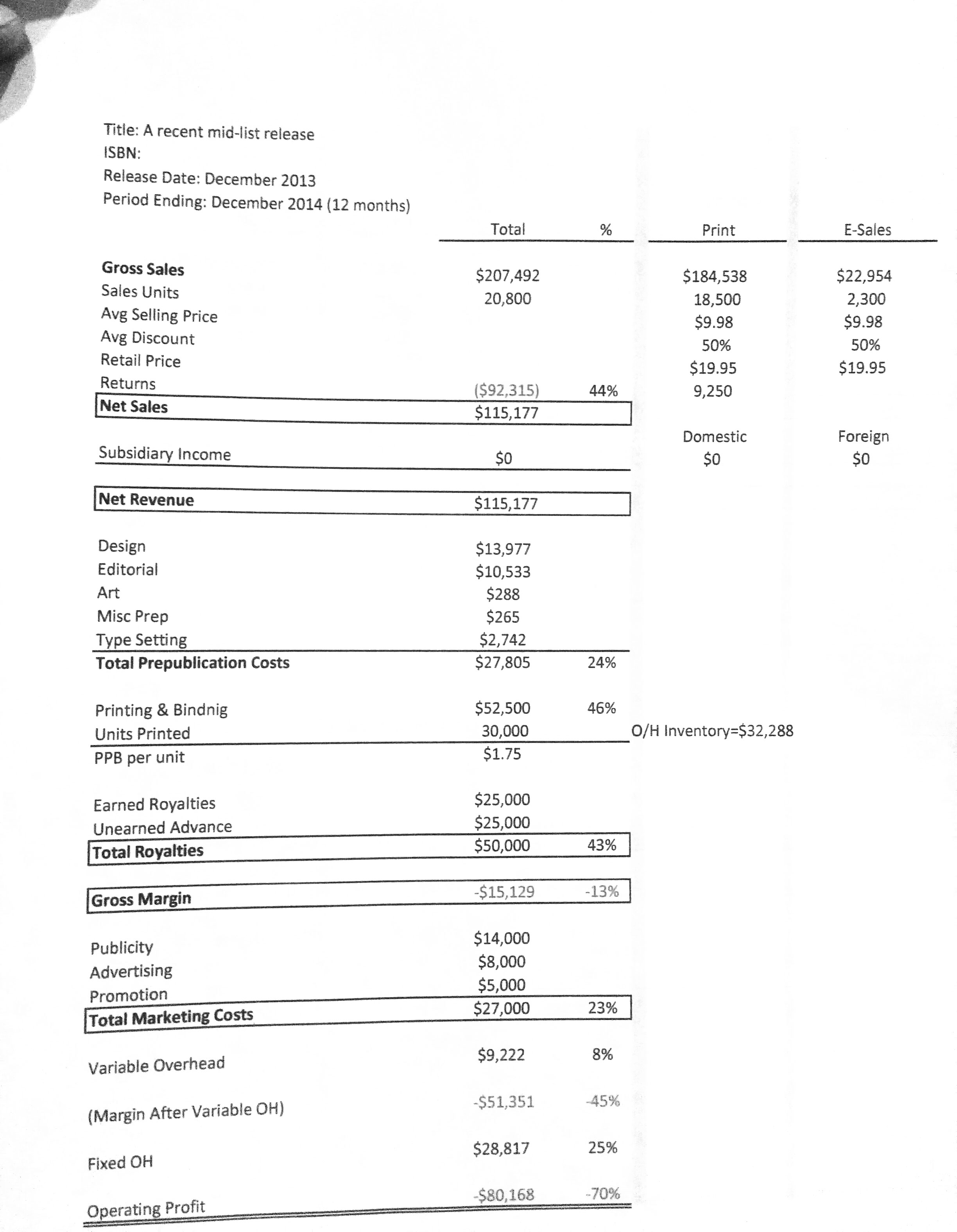The American Booksellers Association's annual conference, Winter Institute, celebrated its 11th year Jan. 23-26 in Denver, Colorado. BookNet's own Lauren Stewart trekked to Denver to join booksellers in professional development, networking, collaboration, and a good time. What follows is one of her reports from the conference.
Earlier, I covered a Winter Institute session (in a blog post I called 11 things booksellers want publishers to know in 2016: A #WI11 report) where booksellers shared the financial realities of a year in the life of a general-interest bookshop. In a Sunday afternoon session called The Economics of Publishing, a panel of US-based publishers shared the financial realities of their industry. Here is a roundup of what the panelists would like booksellers to know when considering the financial realities of the publishing business:
The dream for any publisher is to have to pay royalties; it's an indication that an author has earned out an advance.
For many debut novels when the first press is 20,000 or less, the return rate is often as high as 50%, with the industry average for all titles falling between 25 and 30%.
Selling some non-returnable and diversifying the placement of a publisher's books in the marketplace helps to offset returns from other accounts.
The popular saying, "You cannot print your way to profitability," rings true: the biggest stresses for publishers are managing stock quantities in the market while deciding where to save margin (i.e., choosing between getting books to market faster by printing domestically at a higher cost or printing overseas and waiting 3-4 months for delivery).
The publishing model has fundamentally changed: publishers are happier printing fewer copies at a lower margin and watching the book build over time.
Amazon is not necessarily the biggest account "out of the door" when pre-orders are placed for new titles, though they may sell a huge volume over the lifetime of a title.
Physical catalogues are still alive and well for certain channels (e.g., the "gift" store market) as well as particular product lines (e.g., calendars), so there is still a need to maintain workflows for the creation (and maintenance) of both physical and digital catalogues.
Contrary to popular belief, there is no cap of ~10% on marketing expenses for any given title. Also, marketing decisions are not made after asking, "Have we done enough?" but after considering what can (rationally) be done to further the success of a book. Bullish numbers all-around make publishers consider every marketing expense quite carefully:
Galleys cost, on average, $6 per copy.
- A full-page, black-and-white advertisement in The New York Times can cost as much as $60,000-$85,000 per page, where the same ad in The New York Times Book Review can cost $25,000-$35,000.
An author tour costs an average of $1,500-$1,800 per city.
Publishers don't know the magic of what makes a title "work": publishers are iterative, monitoring the buzz around a book and responding to market interest.
There is both fixed (e.g., payroll & occupancy) and variable (i.e., can be controlled by the publisher) overhead, which averages a cumulative 30% per title.
The trade paperback market is disappearing, largely due to the emergence of the ebook. Those customers who used to wait to purchase the paperback for the lower price are now able to obtain a lower-priced (compared to a hardcover) ebook immediately on publication.
Resources
Panelists:
- George Gibson, Publishing Director, Bloomsbury USA (New York, NY)
- Matty Goldberg, President, Publishing and Client Sales Development, Perseus Book Group (New York, NY)
- Kirsty Melville, President and Publisher, Andrews McMeel Universal (Kansas City, MO)
- Steven Pace, Sales Director, Workman Publishing (New York, NY)
- Joy Dallanegra-Sanger, ABA (White Plains, NY) (Moderator)
Sample P&Ls and glossary of terms shared with session attendees (phone pictures provided in absence of available digital copies, click to enlarge):
For a "bestseller"; a "midlist" title; and a glossary of terms





